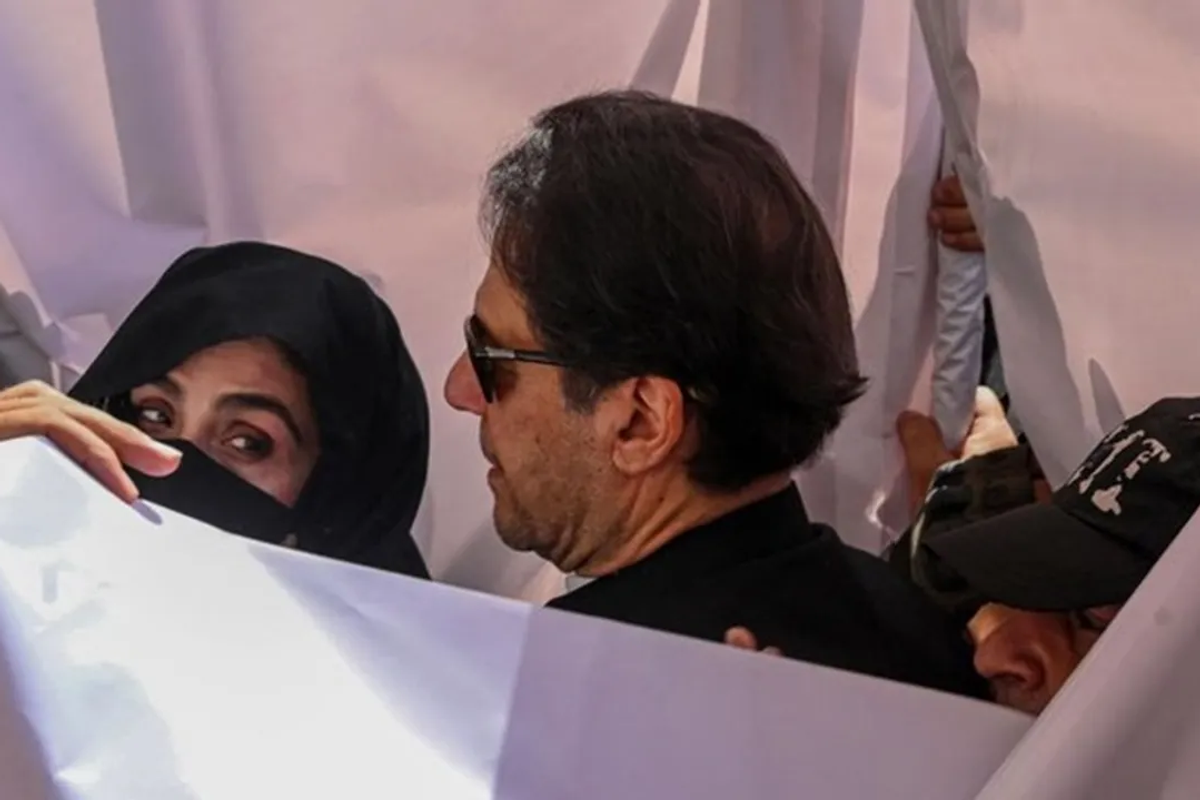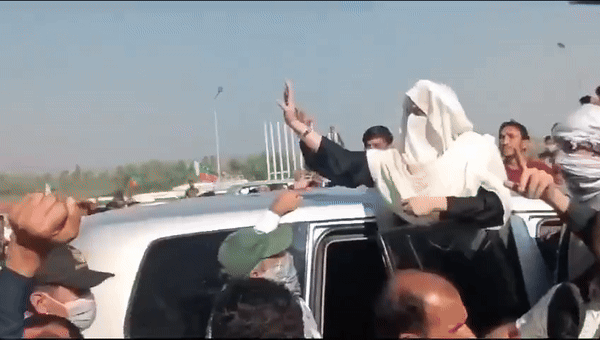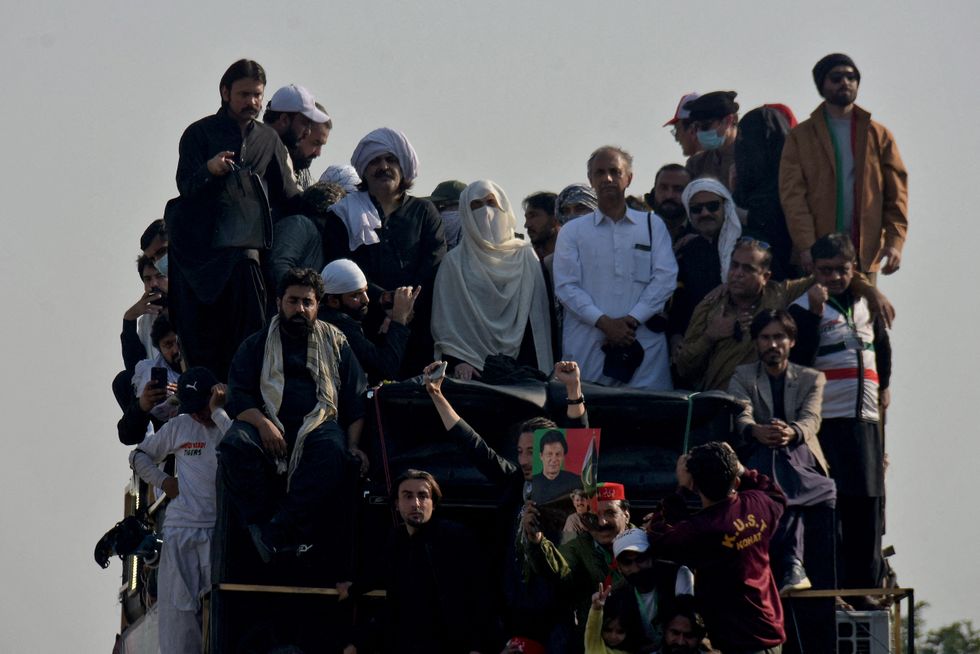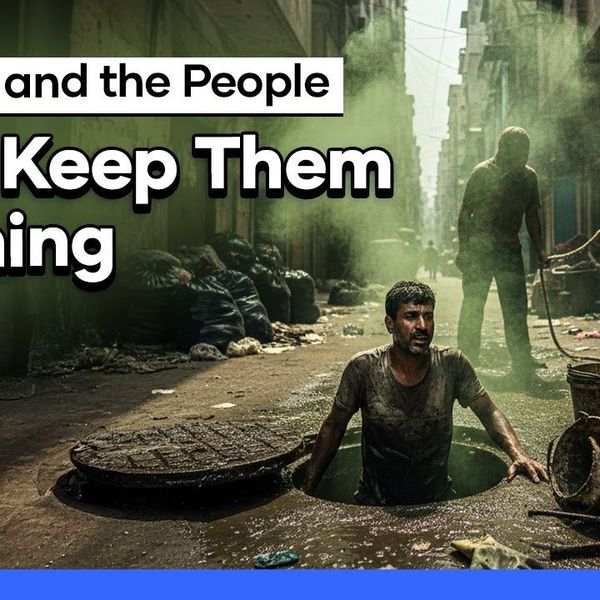Pakistan's ex-PM Khan defends wife amid backlash over protest strategy
Last week’s protests ended abruptly after Bushra Bibi and other party leaders reportedly left Islamabad during a security crackdown
News Desk
The News Desk provides timely and factual coverage of national and international events, with an emphasis on accuracy and clarity.

Khan defends Bushra Bibi, says she followed his orders during the Islamabad protest
PTI protests ended in chaos as leaders left amid a security crackdown
Internal rifts deepen in PTI as leaders face criticism for protest mismanagement and poor planning
Khan calls for judicial probe into ‘Islamabad massacre’, demanding accountability for killingsPakistan's jailed former Prime Minister and Pakistan Tehreek-e-Insaf (PTI) founder, Imran Khan, defended his wife, Bushra Bibi, on Tuesday amid mounting internal criticism over decisions made during recent protests.
“I instructed Bushra Bibi on how to lead the protest to Islamabad, and she acted on my directions,” Khan told journalists and lawyers visiting him at Adiala Jail, where he is currently imprisoned.
Thousands of PTI supporters marched into Islamabad last week in response to Khan's call for his release from prison and to challenge his disqualification from February's elections.
The government deployed hundreds of security personnel, resulting in violent clashes near D-Chowk, a high-security zone close to the parliament.
The protests ended abruptly after Bushra Bibi and other party leaders, including Khyber Pakhtunkhwa Chief Minister Ali Amin Gandapur, reportedly left the capital during a security crackdown.

At least 10 people, including police officers, paramilitary personnel, and civilians, were reportedly killed.
PTI Chairman Barrister Gohar Ali Khan said that 12 party supporters were killed and dismissed claims of "hundreds of martyrs" made by some party leaders. He also noted that D-Chowk was not the planned destination for the protesters.
Speaking from Adiala Jail, Khan accused authorities of targeting unarmed citizens. “Today, my family informed me of the complete details of the Islamabad massacre, where our peaceful protestors were fired upon with live ammunition. Dozens of unarmed citizens who spoke about the Constitution and the law were martyred, and hundreds were injured. So far, details of 12 martyrs have surfaced,” he said.
“This brutality marks one of the darkest chapters in Pakistan’s history. Yahya Khan Part II has been imposed on this country,” Khan added, comparing the government’s actions to the military crackdown under former military ruler Yahya Khan.
The PTI founder called on the Supreme Court to form an impartial judicial commission to investigate the killings. He demanded accountability for those involved and insisted on lodging police reports against Prime Minister Shehbaz Sharif and Interior Minister Mohsin Naqvi.
“All hospital and CCTV footage must be preserved to prevent evidence tampering as seen on May 9,” he urged. He also instructed PTI officials to support the families of victims and push for the release of detainees.
Referring to past military operations, Khan warned, “Operations enforced with guns always appear successful, but their consequences are far-reaching. The bloodshed in Islamabad will have long-lasting effects.”
Khan reiterated his call for party unity, describing the movement as more than politics. “This is not politics; it is a jihad,” he declared.
Internal rifts deepen in PTI following protest failure
Khan’s party faces mounting internal divisions after its failed attempt to stage a sit-in at Islamabad’s D-Chowk. The protest aimed to demand Khan’s release from jail but ended in disarray, exposing cracks within the party’s leadership.
Party insiders describe growing frustration with what many see as weak and indecisive leadership. The crisis deepened further with the resignation of Salman Akram Raja, PTI’s nominated Secretary General, who cited “personal reasons".
Adding to the turmoil, Sahibzada Hamid Raza, a PTI ally and leader of the Sunni Ittehad Council (SIC), also resigned from his seat in the National Assembly and PTI’s Core Committee.
Key figures, including Barrister Gohar, Khyber Pakhtunkhwa Chief Minister Ali Amin Gandapur, and Bushra Bibi have come under fire for alleged poor decision-making. Critics argue that their choices directly contributed to the protest’s failure.
Shahid Khattak, a senior PTI leader, openly accused the leadership of abandoning party workers. “The march’s purpose was to achieve our constitutional objectives, but where were those in key positions? Is their job only to enjoy perks?” Khattak wrote on X (formerly Twitter).
He further criticized the leadership for failing to prevent unrest despite having advance knowledge. “They left workers vulnerable to police brutality. This is an unforgivable crime,” he added.

Another senior leader, Shaukat Yousafzai, pointed fingers at Bushra Bibi for overruling the initial plan to hold the rally at Sangjani, a safer location.
“Khan had agreed to Sangjani, but Bushra’s insistence on D-Chowk caused us to lose everything. Leadership must take responsibility and step down if they can’t make the right decisions,” he said in a video message.
Yousafzai also condemned the Punjab leadership’s absence during the protests, praising only a few, like Gandapur, Asad Qaiser, Omar Ayub, and Ali Asghar, for standing with the workers. He criticized the lack of preparation, saying, “Even if we had reached D-Chowk, there was no plan. Why wasn’t a consultative committee formed before leaving Peshawar?”
Barrister Muhammad Ali Saif, spokesperson for the KP chief minister, echoed these concerns in an interview, blaming poor planning and internal disagreements for the fiasco.
“Khan initially agreed to Sangjani, which could have been a safer option, but internal disputes led to the disastrous D-Chowk plan,” he revealed.
Logistical shortcomings also compounded the protest’s failure. “Low turnout, insufficient facilities, and the inability to manage participants from remote areas left workers disappointed and disillusioned,” Yousafzai noted.
Khattak and Yousafzai have called for internal accountability, urging a leadership overhaul. “This isn’t about titles but standing with workers and honoring Khan’s vision. Weak leaders have no place in PTI,” said Khattak.
Yousafzai was even more direct, demanding that ineffective leaders step aside. “Leadership is about action, not just holding titles. We need bold leaders who can make timely decisions,” he asserted.
The internal discontent threatens to derail PTI’s momentum and tarnish Imran Khan’s legacy. “This movement is soaked in blood, and blood never forgives,” Khattak warned.PM chairs task force meeting
Meanwhile, Prime Minister Shehbaz Sharif on Tuesday chaired a meeting on the task force investigating the riots during the 24 November protest in Islamabad.
The session reviewed weekly progress on legal actions against those accused of spreading unrest, damaging public property, and harming law enforcement officials.
“All perpetrators must face the full force of the law for violating order, damaging state assets, and attacking security personnel during the protests,” the Prime Minister said.
Sharif expressed embarrassment over the unrest coinciding with the state visit of Belarusian President Alexander Lukashenko. “The assault on the capital during an official visit brought great shame to the nation,” he stated.
The Prime Minister announced plans to establish a world-class anti-riot force tailored to modern-day challenges. Islamabad’s Safe City project will also be upgraded with a forensic lab meeting international standards, ensuring all necessary resources are allocated.
Officials briefed the meeting on collected evidence, including weapons, bullet casings, and other forensic material from the scene, which have been sent for analysis. The process of identifying rioters through forensic methods and CCTV footage is ongoing.
“Once identification is complete, all individuals involved will be presented in court,” officials confirmed.
The meeting was attended by Interior Minister Mohsin Naqvi, Economic Affairs Minister Ahsan Cheema, Law Minister Azam Nazeer Tarar, and Advisor Rana Sanaullah, alongside senior officials.










Comments
See what people are discussing